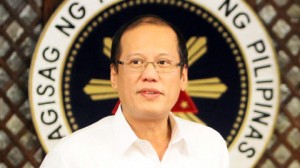President Benigno Aquino III said he did not need emergency powers “so far” to deal with the crisis in Mindanao.
“At this time, I am not sure whether emergency powers are what are needed,” the President on Thursday told reporters in Taguig City where he led the inauguration of the war memorial hall for Filipino soldiers who fought in the Korean War in the 1950s.
But Senator Antonio Trillanes IV, an ally of President Aquino, has filed a bill seeking to grant him emergency powers to help put an end to the energy crisis in Mindanao.
The President said the government was addressing the power shortage in Mindanao which he noted was an existing problem when he came into office in June 2010.
Under Trillanes’ Senate Bill No. 3167, the President would have the power to “enter into negotiated contracts for the construction, repair, rehabilitation, improvement or maintenance of power plants, projects and facilities.”
For one year
The emergency powers would be in effect for one year and would be subject to “some safeguard provisions,” said Trillanes, who pinned the blame on “the negligence of the previous administration” over what he called “the looming problem of energy in Mindanao.”
The measure prohibits the government from granting a sovereign guarantee for the payment of obligations incurred by independent power producers.
“Likewise, this measure prohibits the inclusion of the onerous take-or-pay or similar provision, which appeared to have been abused in the past,” Trillanes said in a statement.
Mr. Aquino denied reports that he had been criticizing Energy Secretary Jose Rene Almendras for the power crisis in Mindanao.
The President said the major source of power on the island—the Agus 6 hydropower plant, which only had a life span of 30 years—was put up even before he and Almendras were born.
He said the repair of Agus 6 would take 30 months and the two coal-fired plants being constructed would take two to three years to complete.
Mr. Aquino said the construction of the two coal-fired plants had been delayed because it took the two firms setting them up over a year to get the necessary permits.
“So we are trying to expedite the process, at the same time taking into consideration the concerns of the residents who will be affected,” he said.
Clarify issues
The President reiterated the need for alternative sources of power generation in Mindanao.
“There is a need for power and power has to come from somewhere,” he said, adding that because of global climate change the island should not rely only on hydroelectric plants or those powered by water.
He said that “so far” he did not need any extra power to solve the crisis in Mindanao.
On the planned power summit for Mindanao in Davao City after Holy Week, Mr. Aquino underscored the need to clarify the issues on the power crisis.
“There is a lot of speculation, a lot of false information and a lot of efforts to cause greater uncertainty among the people of Mindanao, which we will try to correct by the time the summit is conducted,” he said.
Although Mr. Aquino was not keen on having emergency powers for the power crisis, former President Fidel Ramos said there may be a need for special powers for the President if reports in the media about the crisis in Mindanao were true.
“Who wants to study their homework and just use a candle? That was our experience before,” Ramos told reporters.
Ramos said he was given emergency powers by Congress to solve the eight to 12-hour brownouts in Metro Manila in 1992. But he said he was able to solve the power problem then in 1993 “thanks to the emergency electric power law that was passed in my favor.”
“But (the emergency power) is self-terminating. It is not a perpetual sort of authority. You use it when you need it,” Ramos said.
Audit power plants
The Freedom from Debt Coalition said there was no need for presidential emergency powers.
“What President Aquino should do is to instruct the Department of Energy to conduct an actual technical audit of all existing power plants in Mindanao to determine their rated capacities and if they are running according to such capacities on the one hand, and make a serious examination of existing and future demand for power,” the group said.
Senator Aquilino Pimentel III said the Mindanao summit should set the record straight on why the island was experiencing an energy shortage.
He cited two “theories,” one, that there is a real supply shortage given the high demand, and two, that the problem is “an artificially created shortage.”
For his part, Senator Sergio Osmeña III wants the President to focus on convincing Mindanao-based electric cooperatives and local government units to realize the importance of creating new power sources to respond to the growing demand for electricity.
“Electric cooperatives insist that [Napocor] subsidize the supply [deficiency] from power barges when Napocor is already hard-up,” said Osmeña, the chair of the Senate energy committee.
As it is, Mindanao’s power deficit for March has already reached 178 megawatts (MW) and is expected to shoot up to 345 MW by April, according to Senator Francis Escudero.
“I hope the President can talk to the co-ops. He has to talk to members of Congress from Mindanao, the local government officials, the electric cooperatives and the people of Mindanao,” Osmeña said.
Co-ops ‘spoiled’
Osmeña described the electric cooperatives of Mindanao as “so spoiled” because they “don’t want to buy power supplied by the barges.”
He said local governments in Mindanao were further aggravating the situation by giving those who want to invest in power generation a difficult time acquiring permits, licenses and other requirements before they can operate.
